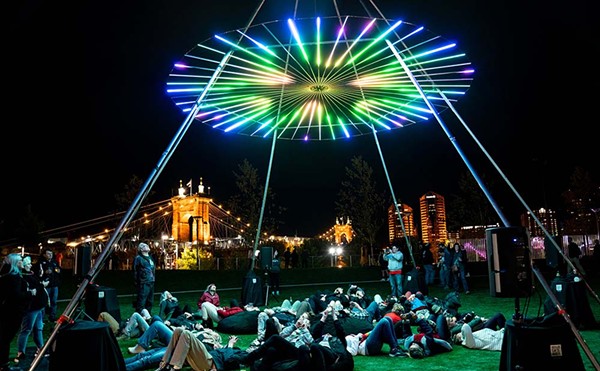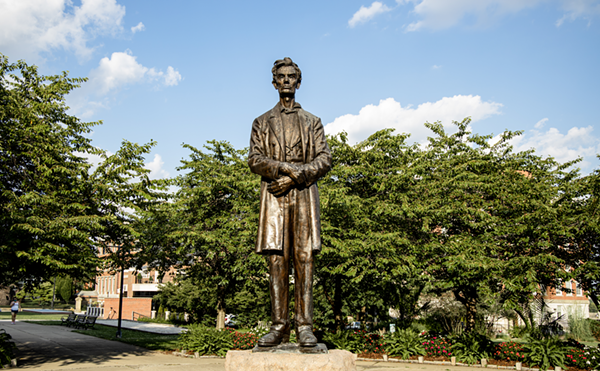|
In a four-day stretch I recently saw plays by 18 writers, beginning with Melanie Marnich's new script A Sleeping Country at the Cincinnati Playhouse on March 27 and wrapping up with King Lear at Cincinnati Shakespeare on March 30. (Look for reviews in this week's issue.)
I also spent time in Louisville at the Humana Festival of New American Plays, presented by Actors Theatre. The festival boosted the count: In addition to five full-length plays, it offered four 10-minute plays (by four different writers) and Game On, a showcase with scenes on the theme of sports by seven writers. (For commentary on the Humana shows, go to our A&E Blog.)
With this banquet of plays rolling around in my head, I've been pondering the current state of playwriting. Comparisons with King Lear are unfair, since it's arguably Shakespeare's greatest tragedy (and Cincinnati Shakespeare has mounted a "fierce" production, a word of praise that a young friend employs). But Lear has been restaged for four centuries because its themes of family strife, loyalty and love continue to mean something. Are contemporary playwrights doing that?
Becky Shaw, a very funny and biting Humana play by Gina Gionfriddo, is about a fractious family and an odd woman who cuts through their self-absorbed behavior.
Three of the four 10-minute plays were comic vignettes, and most of Game On could easily become sketches for Saturday Night Live. But all the humor was so topical that in a few years, it won't mean much.
Two scripts in Louisville, Neighborhood 3: Requisition of Doom by Jennifer Haley and thisBEAUTIFULcity, a musical reflecting on a cross-section of Evangelical America living in Colorado Springs, were very topical; the former is a frightening fantasy piece about video games, while the latter explores religion and public life in 21st-century America. A third show, the break/s, a performance piece by Marc Bamuthi Joseph, provided a personal documentary about the Hip Hop generation. They offer insightful commentary and engaging productions for sure, but they're not lasting theatrical works.
While drawing deeply from a well of humor, Marnich's A Sleeping Country is ultimately a romantic story with emotional depth. It evolves into a tale of self-awareness and inner peace with some lasting meaning. Likewise, another Humana play, Great Falls by Lee Blessing, is a somber treatise about two people from a broken family, a man and his onetime stepdaughter, on a car trip across the Great Plains that reveals personal pain — and a faint glimmer of healing. (An intriguing fact: Playwrights Marnich and Blessing happen to be married.)
Every play need not aspire to be a lasting classic. Some are meant to entertain or motivate. But these two scripts reminded me that writers today can create plays that address lasting and universal human issues. I hope you have the chance to see something onstage that reminds you of the same thing.
CONTACT RICK PENDER: [email protected]






